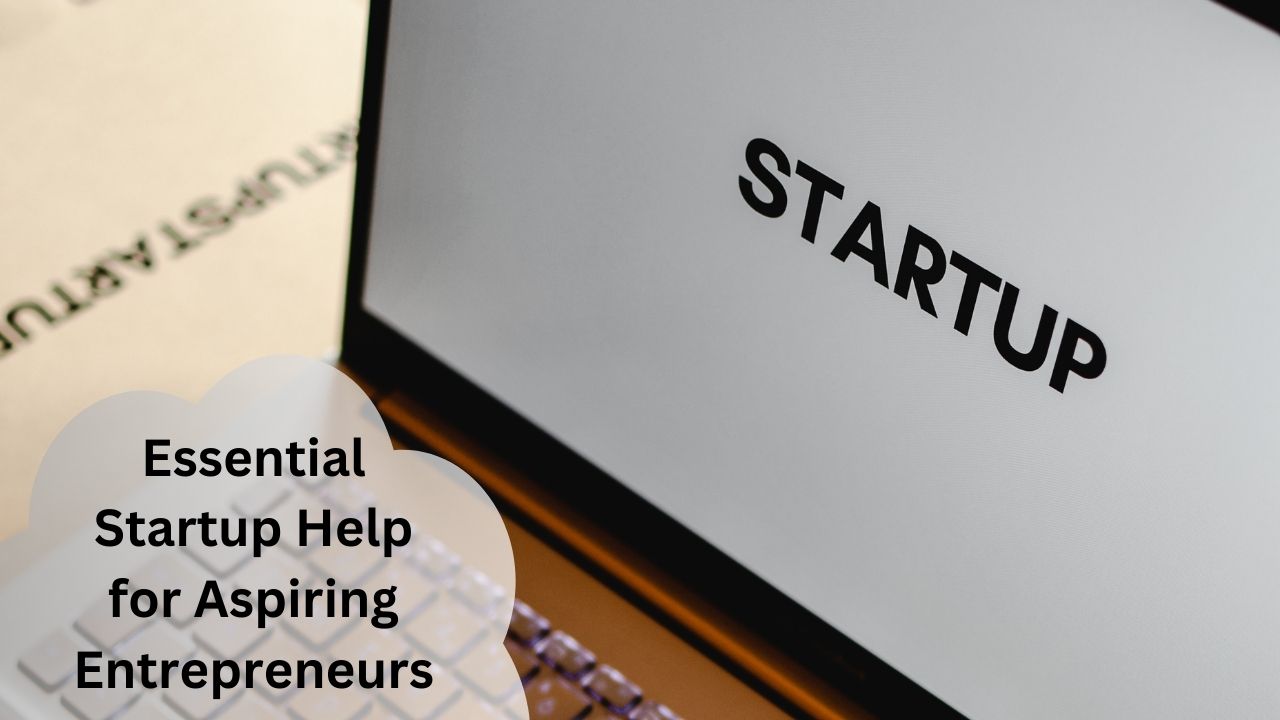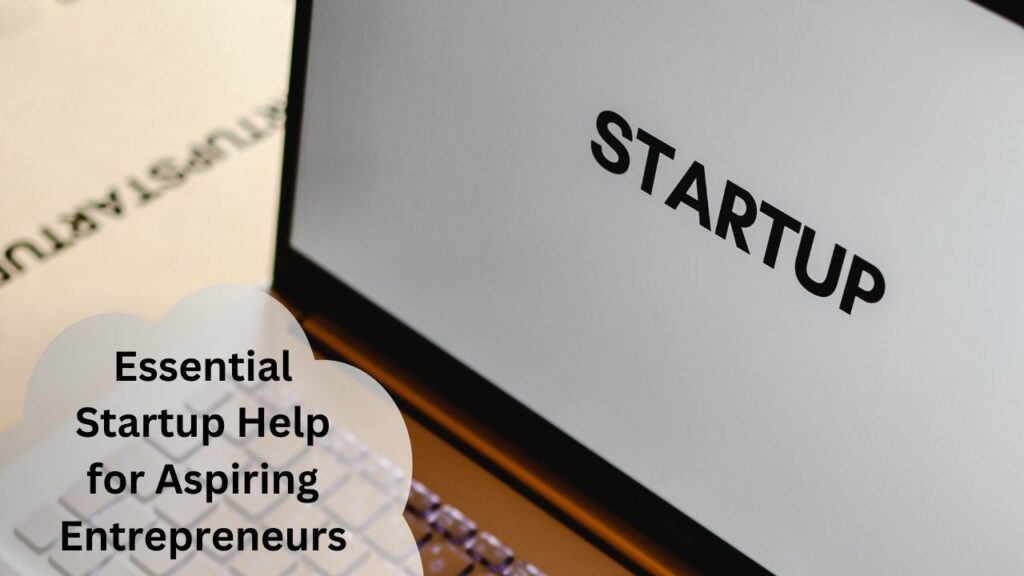Your cart is currently empty!
Category: Career
Empower your career journey with Jobs Innovators’ dedicated career category. Explore expert advice, insights, and strategies to navigate the professional world successfully. Take the next step towards your dream career today.

Rev Your Engine for Success: All You Need to Know About Automobile Engineering

The automobile industry is a global powerhouse, constantly innovating and shaping the way we move. But have you ever wondered about the minds behind these marvels of engineering? Enter the world of automobile engineering, a dynamic field that brings together creativity, technical expertise, and a passion for all things automotive.
What is Automobile Engineering?
In essence, automobile engineering is the application of various engineering disciplines like mechanical, electrical, and software engineering to design, develop, manufacture, and maintain all types of vehicles – from cars and motorcycles to trucks and buses. This multifaceted field encompasses a wide range of tasks, including:
- Conceptualizing and designing new vehicles: This involves sketching, creating 3D models, and using specialized software to analyze performance and optimize designs.
- Developing powertrains and drivetrains: Engineers work on various aspects like engines, transmissions, and fuel systems to ensure efficient and reliable operation.
- Integrating new technologies: From advanced safety features like airbags and autonomous driving systems to eco-friendly electric and hybrid powertrains, automobile engineers are at the forefront of incorporating cutting-edge technologies.
- Testing and evaluation: Prototypes undergo rigorous testing to ensure they meet safety standards, performance benchmarks, and fuel efficiency regulations.
How to Become an Automobile Engineer:
If you’re fascinated by the world of automobiles and possess a strong foundation in science and mathematics, becoming an automobile engineer could be the perfect career path for you. Here’s a roadmap to get you started:
1. Educational Qualifications:
- Bachelor’s Degree: The most common entry point is a Bachelor of Technology (B.Tech) in Automobile Engineering. This four-year program equips you with the core theoretical knowledge and practical skills required for the field.
- Diploma Courses: Some institutions offer diploma courses in Automobile Engineering, which are typically three-year programs focusing on specific technical aspects.
2. Entrance Exams:
- Competitive entrance exams like JEE Main and state-level engineering entrance exams are often prerequisites for admission into B.Tech programs at reputed universities.
3. Skill Development:
- Alongside academics, honing your technical skills through internships, projects, and workshops is crucial.
- Proficiency in software like Computer-Aided Design (CAD) and engineering simulation tools is highly sought-after.
Job Opportunities and Salary in Automobile Engineering:
The automobile industry offers a plethora of exciting career opportunities for qualified engineers. Some of the key job roles include:
- Automobile Engineer
- Vehicle/Car Designer
- Production Engineer
- Research and Development Engineer
- Quality Control Engineer
Salary can vary depending on factors like experience, location, skillset, and the specific company. According to a recent survey, fresh graduates in India can expect a starting salary of ₹3-4 lakhs per annum, with experienced professionals earning significantly higher.
Eligibility Criteria:
To pursue a career in automobile engineering, you should ideally have:
- Strong academic background in Physics, Chemistry, and Mathematics at the senior secondary level.
- Passion for automobiles and a keen interest in understanding their mechanics and functionalities.
- Analytical and problem-solving skills.
- Ability to work effectively in teams and communicate technical concepts clearly.
Case Study: The Rise of Electric Vehicles
The increasing focus on sustainability has propelled the electric vehicle (EV) segment to new heights. Automobile engineers are playing a pivotal role in developing efficient and affordable EVs, addressing challenges related to battery technology, charging infrastructure, and vehicle design. This shift towards EVs presents exciting opportunities for engineers with expertise in electric powertrains, battery management systems, and software development for autonomous driving features.
Stay Ahead of the Curve:
The automobile industry is constantly evolving, driven by advancements in technology, changing consumer preferences, and environmental regulations. To stay ahead of the curve, aspiring and practicing automobile engineers must continuously update their knowledge and skillset. This can be achieved through:
- Continuing education: Pursuing postgraduate studies in specialized areas like automotive electronics or alternative fuels can enhance your expertise.
- Professional development: Attending industry conferences, workshops, and seminars allows you to stay abreast of the latest trends and innovations.
- Networking: Building connections with professionals in the field can open doors to new opportunities and provide valuable insights.
The world of automobile engineering is a dynamic and rewarding field for those with a passion for innovation and a drive to shape the future of mobility. If you’re interested in embarking on this exciting journey, subscribe to our newsletter for regular updates on job opportunities, career-building tips, and the latest news from the ever-evolving automotive industry.

What is the best way to get a job in Singapore? Easy Steps to Your Dream Job

The Lion City, Singapore, continues to roar as a global business hub, attracting international talent with its thriving economy, diverse culture, and world-class infrastructure. But with such a dynamic job market, what is the best way to get a job in Singapore? This comprehensive guide unveils the secrets to navigating the landscape and securing your dream position.
Understanding the Singaporean Job Market
Singapore boasts a highly skilled workforce, with a strong emphasis on innovation and adaptability. The government actively encourages foreign talent acquisition, particularly in sectors like technology, finance, and healthcare. However, securing a job requires a strategic approach tailored to the specific requirements and regulations.
Key factors to consider:
- Work Visa: Obtaining the appropriate work visa, such as the Employment Pass (EP) or S Pass, is crucial for foreign professionals. Eligibility depends on your qualifications, salary, and the sponsoring company.
- In-demand Skills: Researching high-demand skills in your chosen field is vital. Singapore prioritizes professionals with expertise in areas like artificial intelligence, cybersecurity, and data analytics.
- Local Knowledge: Familiarize yourself with local work culture, including communication styles and professional expectations. Adapting to these nuances can significantly enhance your chances of success.
Crafting Your Job Hunting Strategy
Now, let’s delve into the proven strategies that will equip you to land your dream job in Singapore:
1. Leverage Online Platforms:
- Job Boards: Utilize popular platforms like JobStreet, Indeed, and MyCareersFuture to explore a vast array of job openings across various industries.
- LinkedIn: Build a strong professional profile, connect with industry professionals, and actively engage in relevant groups to increase your visibility.
- Company Websites: Many companies in Singapore advertise positions directly on their websites. Regularly check the career sections of your target companies for potential opportunities.
2. Network Like a Pro:
- Professional Networking Events: Attend industry conferences, workshops, and meetups to connect with potential employers and build valuable relationships.
- Alumni Networks: If you are a graduate, leverage your university’s alumni network to connect with professionals working in Singapore.
- Online Communities: Participate in online forums and social media groups relevant to your field to engage in discussions and gain insights from industry experts.
3. Seek Support from Recruitment Agencies:
- Reputable recruitment agencies specialize in matching qualified candidates with suitable job openings. They can offer guidance on resume writing, interview preparation, and navigating the visa application process.
- Choose agencies with a strong track record in your specific industry and conduct thorough research before engaging their services.
4. Tailor Your Application Materials:
- Craft a compelling resume that highlights your relevant skills, experience, and achievements, aligning them with the specific job requirements.
- Personalize your cover letter for each application, demonstrating your genuine interest in the company and the position.
- Proofread meticulously to ensure error-free application materials that create a positive first impression.
5. Ace the Interview Process:
- Research the company thoroughly to demonstrate your understanding of their culture, values, and current projects.
- Prepare thoughtful questions to showcase your genuine interest and proactive approach.
- Dress professionally and maintain confident body language throughout the interview.
Case Study: Landing a Tech Job in Singapore
Ahaan, a software engineer from India, successfully secured a position at a leading tech startup in Singapore. She utilized a multi-pronged approach:
- Attended industry meetups and networking events to connect with professionals in the tech sector.
- Collaborated with a recruitment agency specializing in tech placements.
- Tailored her resume and cover letter to highlight her expertise in relevant programming languages and experience in similar projects.
- Impressed the interviewers with her in-depth knowledge of the company and her passion for the tech industry.
Beyond the Basics: Additional Strategies for Standing Out in the Singapore Job Market
While the core strategies outlined above provide a solid foundation, here are some additional tips to distinguish yourself from other applicants and grab the attention of potential employers in Singapore:
1. Showcase Your Language Proficiency:
Singapore is a multilingual society, and fluency in English is essential for most professional roles. Additionally, demonstrating proficiency in Mandarin or other local languages can be a significant advantage, especially for positions requiring interaction with diverse clientele or collaborators.
2. Highlight Cultural Understanding:
Beyond language skills, demonstrating an understanding of Singaporean culture and work etiquette goes a long way. Research local customs, dress codes, and communication styles to avoid any cultural faux pas during the application process and interviews.
3. Build a Strong Online Presence:
In today’s digital age, your online presence can significantly impact your job search. Maintain a professional online profile on platforms like LinkedIn and showcase your expertise through relevant content, articles, or participation in online discussions.
4. Volunteer or Gain Local Experience:
Volunteering for local organizations or participating in internships or short-term projects within your field can provide valuable experience and demonstrate your commitment to the Singaporean community.
5. Consider Upskilling or Reskilling:
Investing in professional development courses or certifications relevant to your desired field can equip you with the latest skills and knowledge, making you a more competitive candidate.
Remember:
- Networking is key. Building relationships with professionals in your field can open doors to new opportunities and provide valuable insights into the job market.
- Be patient and persistent. Finding the right job takes time and effort. Don’t get discouraged by setbacks, and keep refining your approach based on your experiences.
- Maintain a positive attitude. Your enthusiasm and passion for your chosen field will shine through during the interview process and leave a lasting impression on potential employers.
By combining these additional strategies with the core job search techniques outlined earlier, you can significantly enhance your chances of landing your dream job in Singapore and embarking on a successful career journey in this thriving business hub.

What is Your Biggest Career Mistake or Failure? Turning Setbacks into Stepping Stones

We’ve all been there. That moment in our professional journey where things didn’t quite go as planned. A missed opportunity, a project gone wrong, or a decision that backfired. These career mistakes or failures can feel like crushing blows, leaving us questioning our abilities and dreading the future. But what if we told you that these setbacks, while undoubtedly challenging, can also be valuable learning experiences that propel us forward in our careers?
According to a recent study by Resume Lab, over 70% of professionals admit to making a significant career mistake at some point. This statistic highlights the universality of these experiences and underscores the importance of understanding how to navigate them effectively.
In this article, we’ll delve into the world of career mistakes and failures, exploring:
- Common types of career mistakes and failures
- The impact of career mistakes and failures
- Strategies for turning setbacks into stepping stones
- Real-life examples of individuals who overcame career failures
By understanding these crucial aspects, you can equip yourself with the tools and mindset to not only bounce back from career failures but also emerge stronger and more resilient.
Common Types of Career Mistakes and Failures
Career mistakes and failures can manifest in various ways, but some of the most frequent ones include:
- Making a poor job choice: Accepting a position that doesn’t align with your skills, interests, or values can lead to dissatisfaction and hinder your career growth.
- Poor performance: This could encompass missing deadlines, exceeding budgets, or failing to meet expectations.
- Communication breakdowns: Ineffective communication with colleagues, superiors, or clients can lead to misunderstandings, missed opportunities, and even conflict.
- Lack of planning or organization: Poor time management, inadequate preparation, or neglecting crucial details can negatively impact project outcomes.
- Taking unnecessary risks: While calculated risks can be beneficial, venturing outside your comfort zone without proper assessment can lead to unforeseen consequences.
It’s important to remember that mistakes and failures are not exclusive to any specific career stage or level. They can occur at any point, regardless of experience or expertise.
The Impact of Career Mistakes and Failures
While the sting of a career setback can be significant, it’s crucial to acknowledge that these experiences also have the potential to impact your professional journey in various ways:
- Loss of confidence: Facing failure can understandably dent your self-belief and make you question your abilities.
- Reputational damage: Depending on the severity of the mistake, it could potentially impact your professional reputation, especially if it becomes widely known.
- Missed opportunities: A significant failure might lead to missed promotions, projects, or career advancements.
- Emotional distress: Dealing with failure can trigger feelings of stress, anxiety, and even depression.
However, it’s important to reframe these negative impacts and view them as opportunities for growth and development.
Strategies for Turning Setbacks into Stepping Stones
So, how do you transform career setbacks into stepping stones for success? Here are some effective strategies:
- Embrace ownership: Take responsibility for your mistake and avoid blaming external factors. This demonstrates accountability and paves the way for learning.
- Analyze the situation: Reflect on what went wrong, identify the root cause of the mistake, and understand the contributing factors.
- Seek feedback: Engage in constructive conversations with colleagues, mentors, or supervisors to gain valuable insights and different perspectives.
- Develop an action plan: Based on your analysis and feedback, formulate a concrete plan to address the mistake and prevent similar occurrences in the future.
- Focus on learning: Extract valuable lessons from the experience. What did you learn about yourself, your skills, or the work environment?
- Build resilience: Develop a growth mindset that views challenges as opportunities to learn and improve. Remember, setbacks are temporary, and your ability to bounce back is crucial.
Remember, mistakes and failures are not the end of the road; they are simply detours on your professional journey. By adopting a proactive and growth-oriented approach, you can transform these setbacks into valuable learning experiences that ultimately propel you towards achieving your career goals.
Real-Life Examples of Overcoming Career Failures
Numerous individuals have successfully navigated career setbacks and emerged stronger as a result. Here are two inspiring examples:
- Indra Nooyi, former CEO of PepsiCo: Nooyi faced criticism early in her career for a failed product launch. However, she used this experience to learn from her mistakes, strengthen her leadership skills, and ultimately lead PepsiCo to unprecedented growth.
- Reed Hastings, co-founder of Netflix: In the early days of Netflix, Hastings made a significant decision that resulted in a massive customer backlash. He publicly apologized, acknowledged the mistake, and implemented changes to regain customer trust. Netflix went on to become a global entertainment powerhouse.
These examples illustrate that even the most successful individuals encounter setbacks. What truly defines them is their resilience, learning agility, and unwavering commitment to growth.
Don’t let career mistakes or failures hold you back. Embrace them as learning opportunities, develop a growth mindset, and leverage them to propel yourself towards achieving your professional aspirations.
Subscribe to our newsletter for regular updates on job opportunities, career development tips, and insightful business news to empower your journey towards success.
Together, let’s turn setbacks into stepping stones and build fulfilling and thriving careers!

Why Digital Marketing Skills Are in High Demand: A Lucrative Career Path for the Future

The digital landscape is constantly evolving, and businesses are increasingly reliant on online channels to reach their target audiences. As a result, the demand for skilled digital marketing professionals is skyrocketing.
In fact, a recent study by the Bureau of Labor Statistics projects a 13% job growth rate for advertising, marketing, and promotions managers between 2022 and 2032, much faster than the average for all occupations. This translates to a projected creation of 714,700 new jobs in this field over the decade.
But what exactly makes digital marketing skills so valuable in today’s job market? Let’s delve deeper into the key factors driving this demand:
1. The Rise of the Digital Consumer:
Consumers today spend a significant amount of time online, researching products, engaging with brands on social media, and making purchases through e-commerce platforms. This shift in consumer behavior necessitates a strong online presence for businesses to remain competitive.
2. The Power of Data-Driven Marketing:
Digital marketing allows for precise data collection and analysis, enabling businesses to understand their target audience, track campaign performance, and optimize their strategies for better results. Skilled digital marketers possess the expertise to leverage this data effectively, driving measurable ROI for their campaigns.
3. The Evolving Marketing Landscape:
New technologies and platforms are constantly emerging, from social media trends to artificial intelligence-powered marketing tools. Digital marketing professionals need to be adaptable and possess the skills to stay ahead of the curve, mastering new technologies and strategies as they arise.
4. The Need for Integrated Marketing Campaigns:
Modern marketing requires a holistic approach, seamlessly integrating various online and offline channels to create a cohesive brand experience. Digital marketers play a crucial role in orchestrating these multi-channel campaigns, ensuring consistent messaging and maximizing reach across different touchpoints.
5. The Growth of E-commerce:
The e-commerce industry is booming, with online sales projected to account for nearly 23% of global retail sales by 2025. This surge in online shopping necessitates strong digital marketing strategies to drive traffic, conversions, and brand awareness for e-commerce businesses.
Here’s a real-world example:
Case Study: How a Small Business Used Digital Marketing to Thrive
ABC Bakery, a local bakery struggling to compete with larger chains, implemented a comprehensive digital marketing strategy. They:
- Developed a user-friendly website showcasing their products and online ordering options.
- Launched targeted social media campaigns to engage with local customers and promote special offers.
- Utilized search engine optimization (SEO) techniques to improve their website ranking in search results.
- Implemented email marketing campaigns to nurture leads and drive repeat business.
As a result of these efforts, ABC Bakery saw a significant increase in website traffic, online orders, and overall sales. This demonstrates the tangible impact that effective digital marketing can have on a business’s success.
So, what are the specific digital marketing skills that are most in demand?
Here’s a table highlighting some of the most sought-after skills:
Skill Description Search Engine Optimization (SEO) Optimizing websites and content to rank higher in search engine results pages. Social Media Marketing Creating engaging content and managing brand presence on various social media platforms. Content Marketing Developing and distributing valuable content to attract and engage target audiences. Pay-Per-Click (PPC) Advertising Managing paid advertising campaigns on search engines and social media platforms. Email Marketing Creating and sending targeted email campaigns to nurture leads and drive conversions. Data Analytics Analyzing marketing data to measure campaign performance and gain insights for improvement. These are just a few of the many valuable skills that can equip you for a successful career in digital marketing. By continuously honing your skills and staying updated with the latest trends, you can position yourself as a valuable asset in this ever-growing field.
Ready to take the next step?
Explore online courses, attend industry workshops, and network with other professionals to enhance your digital marketing expertise. Remember, the demand for skilled individuals in this field is only expected to grow in the years to come, making it a lucrative and rewarding career path for those who are passionate about the digital world.
Additional Resources:
Remember, subscribe to our newsletter for regular updates on job opportunities, career-building tips, and the latest business news to stay ahead of the curve in the ever-evolving digital landscape.

Medical Billing Jobs in USA for Indians: A Gateway to a Thriving Healthcare Career

Dreaming of a fulfilling career in the booming US healthcare industry? Look no further than the exciting world of medical billing! This dynamic field offers Indians with strong analytical and detail-oriented skills a unique opportunity to contribute to the smooth functioning of healthcare systems while building a rewarding career. So, if you’re an Indian national seeking a stable and promising path in the USA, consider exploring the exciting world of medical billing jobs.
Why Medical Billing in the USA?
The US healthcare sector is a behemoth, projected to reach a staggering $6.2 trillion by 2026. This growth translates to a surge in demand for skilled medical billing professionals, responsible for submitting accurate insurance claims, handling patient accounts, and ensuring smooth revenue cycles for healthcare providers.
For Indian nationals, medical billing jobs in the USA offer several compelling advantages:
- High demand and stable growth: The Bureau of Labor Statistics projects a 9% growth in medical billing and coding jobs by 2030, much faster than the average for all occupations.
- Competitive salaries: According to Indeed, the average medical billing and coding specialist salary in the USA is $42,931, with experienced professionals earning significantly more.
- Flexible work options: Many medical billing jobs offer remote work possibilities, allowing for a better work-life balance and location independence.
- Career advancement opportunities: With dedication and upskilling, medical billing professionals can advance to supervisory roles, coding positions, or even pursue leadership positions in healthcare management.
Are You Ready to Make the Leap?
If you possess the following skills and qualifications, you could be a perfect fit for medical billing jobs in the USA:
- Strong analytical and problem-solving skills: Medical billing involves meticulous attention to detail and the ability to navigate complex medical codes and insurance regulations.
- Excellent communication and interpersonal skills: Effective communication with patients, healthcare providers, and insurance companies is crucial.
- Proficiency in computer software: Familiarity with medical billing software and basic computer skills is essential.
- Understanding of medical terminology: Although not always mandatory, basic medical knowledge can be advantageous.
Getting Started:
1. Education and Certification:
While formal education is not always mandatory, several accredited certificate programs and online courses can equip you with the necessary knowledge and skills. Consider certifications like Certified Medical Coder (CMC) or Certified Billing and Coding Specialist (CBCS) to enhance your resume.
2. Visa Requirements:
Obtaining a work visa is crucial for Indian nationals working in the USA. Depending on your experience and qualifications, you may be eligible for H-1B visas for skilled professionals or L-1 visas for intracompany transfers.
3. Job Search and Networking:
Utilize online job boards like Indeed, LinkedIn, and Glassdoor to explore medical billing jobs in the USA. Actively network with healthcare professionals and attend industry events to increase your visibility.
Websites to Explore:
- American Academy of Medical Coders (AAMC)
- American Health Information Management Association (AHIMA)
4. Salary and Benefits:
Research average salaries and benefits for medical billing professionals in your desired location to negotiate effectively. Remember, experience, certifications, and location can significantly impact your earning potential.
Remember: Building a successful career in medical billing takes dedication, continuous learning, and a commitment to ethical practices. Stay updated on industry regulations, embrace new technologies, and continuously hone your skills to thrive in this dynamic field.
Ready to embark on your American medical billing journey? Subscribe to our newsletter for regular updates on job opportunities, career-building tips, and the latest news in the healthcare industry. Let’s help you achieve your dream career in the USA!

Crack the Code: Your Ultimate Bank Interview Preparation Guide!

The banking sector, with its stability and growth potential, remains a top career choice for many. But securing your dream bank job isn’t just about clearing written exams. The final hurdle—the bank interview—can be daunting, separating the prepared from the flustered.
Fear not, aspiring bankers! This comprehensive bank interview preparation guide equips you with the knowledge and strategies to confidently navigate the interview process and impress your potential employer.
Why is bank interview preparation crucial?
- 70% weightage: Interviews often carry significant weightage (up to 70%) in final selection, making them a crucial stage.
- First impressions matter: You have limited time to showcase your skills, personality, and suitability for the role.
- Competition is fierce: Stand out from the crowd with a well-prepared and confident performance.
Mastering the Art of the Bank Interview:
1. Know Your Bank and Role:
- Research the bank’s mission, values, and recent developments.
- Understand the specific requirements and responsibilities of the position you applied for.
- Expert Tip: Tailor your responses to demonstrate your alignment with the bank’s culture and the role’s demands.
2. Practice Common Interview Questions:
- Anticipate questions about your background, skills, motivation, and current events.
- Prepare clear, concise, and impactful answers that highlight your strengths and suitability.
- Case Study: A candidate who practiced common “tell me about yourself” questions delivered a compelling personal narrative, showcasing their passion for the banking industry and highlighting relevant skills.
3. Ace the Behavioral Interview:
- Be prepared for questions like “Tell me about a time you faced a challenge…” or “Describe a situation where you demonstrated leadership…”
- Use the STAR method (Situation, Task, Action, Result) to structure your responses and showcase your problem-solving skills and achievements.
4. Dress for Success and Mind Your Body Language:
- Present yourself professionally in appropriate attire, and maintain good posture and eye contact.
- Project confidence through a positive attitude and clear communication.
5. Prepare Your Own Questions:
- Show genuine interest in the bank and the role by asking well-thought-out questions.
- This demonstrates your proactiveness and desire to learn more about the opportunity.
Bonus Resources:
- Mock Interview Platforms: Simulate the real interview experience and receive feedback.
- Career Coaching Services: Get personalized guidance from experienced professionals.
- Industry Publications: Stay updated on banking trends and news.
Take Action Now!
- Subscribe to our newsletter at jobsinnovators.in for exclusive access to:
- Industry-specific bank interview tips and insights
- Mock interview simulations and practice questions
- Job alerts for upcoming bank vacancies
- Valuable career advice and business news
Remember, bank interview preparation is an investment in your future. By following these steps and utilizing the resources provided, you can confidently navigate the interview process and land your dream bank job. Start your journey today and unlock your banking career potential!
By following this guide and utilizing the provided resources, you can significantly increase your chances of acing your bank interview and securing your dream job. Remember, preparation is key, so start now and unlock your banking career potential!

Why Connections Are Your Secret Weapon in Business: SuccessBridges to Success

Forget the lone wolf; collaboration is king! In today’s hyper-connected world, building strong business connections isn’t just a perk, it’s a strategic necessity. From unlocking new opportunities to boosting your brand, these connections fuel your growth and propel you ahead of the competition. So, why wait? Start forging powerful relationships today!
But first, let’s dive deeper:
- What exactly are business connections? They’re mutually beneficial relationships with individuals or organizations, built on trust, respect, and shared interests. Think industry peers, potential clients, mentors, and even competitors (yes, even them!).
- Why are they important? The benefits are manifold:
- Open doors to new opportunities: land dream partnerships, secure funding, or discover hidden talent—connections can be your key to unlocking doors you never knew existed.
- Boost your brand awareness: leverage your network to amplify your reach and spread positive word-of-mouth.
- Gain valuable insights: Tap into the collective knowledge and diverse perspectives of your connections, to stay ahead of trends and make smarter decisions.
- Fuel innovation: Collaboration sparks creativity. By connecting with diverse minds, you unlock new ideas and generate groundbreaking solutions.
The statistics speak for themselves
- 85% of professionals cite networking as critical to their career success. (LinkedIn)
- Companies with strong internal connections report 21% higher profits than those with weak ones. (Gallup)
- 94% of employees feel more productive and engaged when connected to colleagues. (Enboarder)
Case study: From startup to unicorn: the power of connections
Remember Airbnb? It all started with two roommates struggling to pay rent. But through strategic connections with industry leaders and investors, they transformed their idea into a global phenomenon. Their story is a powerful testament to the immense impact strong relationships can have on business success.
Expert insights:
- “Building connections is like creating a safety net for your business. It provides support, resources, and opportunities you wouldn’t have on your own.” – Matthew Laudon, Vice President, ATI Division
- “In the age of information overload, strong connections act as filters, giving you access to the most relevant and valuable insights.” – David Lee, Founder of Innovation Hub
Ready to build your own network? Here are some tips:
- Attend industry events and conferences.
- Join online communities and forums.
- Offer your expertise and knowledge freely.
- Build genuine relationships, not just transactional ones.
- Always be helpful and supportive.
Remember, connection is a two-way street. Invest in building meaningful relationships, and watch your business thrive!
Want to take action?
- Subscribe to our newsletter for exclusive insights, job postings, and career growth tips.
- Check out our resource library for articles on networking, building relationships, and more!
- Visit our website to explore our extensive job board and connect with leading companies.
Together, let’s build a stronger, more connected business world!

Launch Your Indian Startup Dream: Top 10 Incubators to Propel Your Idea to Success

India’s vibrant startup ecosystem is booming, and startup incubators play a crucial role in nurturing promising ventures into thriving businesses. But with so many options, choosing the right one can feel overwhelming. Fear not, aspiring entrepreneurs! This article unveils the top 10 startup incubators in India, helping you find the perfect launchpad for your innovative idea.
Why Startup Incubators Matter:
- Mentorship & Guidance: Experienced mentors provide invaluable advice and support for navigating early-stage challenges.
- Funding & Networking: Access to funding opportunities and a network of investors, potential partners, and industry experts.
- Community & Collaboration: Connect with like-minded founders, fostering collaboration and learning from shared experiences.
Our Top 10 Picks:
1. CIIE IIMA (Ahmedabad): Backed by the Indian Institute of Management Ahmedabad, CIIE IIMA boasts an impressive track record of successful startups across various sectors.
2. IAN Incubator (Pan-India): Funded by the Indian Angel Network, this network-driven incubator offers funding, mentorship, and workshops across numerous cities.
3. NSRCEL IIMB (Bangalore): Part of the Indian Institute of Management Bangalore, NSRCEL is known for its rigorous programs and focus on high-growth potential startups.
4. SINE (Pune): Founded by IIT Bombay and MIT, SINE specializes in technology-based ventures and provides comprehensive incubation support.
5. Kerala Startup Mission (Kerala): This government-backed initiative offers financial assistance, infrastructure, and mentorship to startups in Kerala.
6. Villgro (Chennai): Focused on social impact ventures, Villgro provides funding, mentorship, and market access to startups addressing critical social and environmental challenges.
7. Venture Catalysts (Pan-India): With a presence across multiple cities, Venture Catalysts offers seed funding, mentorship, and network connections to early-stage startups.
8. AdvantEdge Founders (Noida): This early-stage venture capital firm and incubator supports startups in various sectors, with a focus on Tier II and III cities.
9. Startup Village (Kochi): Formerly known as Pupilfirst, Startup Village is a vibrant community-driven incubator located in Kochi, Kerala.
10. The Hatch (Jaipur): Focused on technology and innovation, The Hatch provides incubation support, workshops, and access to funding opportunities.
Success Stories:
- Swiggy, a leading food delivery platform, received early-stage funding and mentorship from IAN Incubator.
- Ola Electric, a revolutionary electric vehicle company, was incubated by NSRCEL IIMB.
- Axio Biosolutions, a healthcare startup developing affordable diagnostics, benefited from Villgro’s support.
Remember: Choosing the right incubator depends on your specific industry, stage of development, and funding needs. Explore each incubator’s website, attend their events, and connect with alumni to find your perfect fit.
Take Action:
- Visit jobsinnovators.in to discover exciting startup opportunities and connect with innovative companies across India.
- Subscribe to our newsletter for the latest startup news, resources, and insights on India’s dynamic entrepreneurial landscape.
Your startup journey begins now! A launchpad to success awaits with the right incubator by your side.

Top 10 Essential Skills for Working in a Startup

Startups are flourishing as centers of disruption, creativity, and innovation in today’s changing corporate environment. It can be thrilling to work in a startup setting, where there are many chances for influence and professional development. However, people require a wide skill set that extends beyond standard corporate responsibilities in order to succeed in this fast-paced ecosystem. Gaining proficiency in these top 10 skills for working in a startup essential for success, regardless of whether you’re an aspiring business owner or hoping to join a startup team.
1. Adaptability and Flexibility
Change is the only constant in the ever-evolving environment that startups work in. Workers need to be flexible and adaptive, ready to take on new tasks and change course when called upon. The secret to succeeding in a startup environment is exhibiting resilience in the face of uncertainty.
2. Problem-Solving Abilities
Every day, issues in the startup industry develop, ranging from technological malfunctions to obstacles in the market. Strong problem-solvers are able to identify problems quickly, come up with creative solutions, and carry them out successfully. Proactively addressing issues is crucial for advancing a startup’s goals and getting over roadblocks.
3. Entrepreneurial Mindset
It is not necessary for every employee in a startup to be an entrepreneur, but developing an entrepreneurial mindset is crucial. This calls for original thought, measured risk-taking, and grasping the chance to create. People who approach their work with an entrepreneurial mindset can spur expansion and help the startup succeed.
4. Team Collaboration
The foundation of any successful startup is teamwork. Strong communication abilities, empathy, and a readiness to hear different points of view are necessary for team members to function well together. Establishing trust and cultivating a cooperative atmosphere empowers teams to attain enhanced synergy and achieve ambitious objectives.
5. Technical Proficiency
Technical expertise is highly prized in startup employment across multiple disciplines in the current digital era. Possessing a strong grasp of pertinent technologies can offer someone a competitive edge in fields such as digital marketing, data analysis, and coding. In a tech-driven startup industry, staying ahead of the curve requires constant learning and keeping up with the latest developments.
6. Resilience in the Face of Failure
Failure is an unavoidable aspect of starting a business, but how people handle setbacks influences how successful they become in the end. Resilience building and failure-based learning are critical for both professional and personal development. Successful entrepreneurs have one thing in common: they accept failure as a teaching opportunity and learn from it to become stronger individuals.
7. Time Management and Prioritization
Time is a valuable resource in the hectic startup world. Proficiency in time management and prioritization is necessary in order to multitask and fulfill deadlines. People who are good at managing their time and concentrating on tasks that have a big impact are vital to the success and productivity of the startup.
8. Creativity and Innovation
Innovation is the lifeblood of startups, and creativity is what propels them ahead. Any startup team can benefit greatly from having people who can think creatively, come up with original ideas, and question the status quo. Innovative ideas and a competitive edge might result from establishing a culture of creativity and an atmosphere that welcomes experimentation.
9. Financial Literacy
Regardless of position, everyone working in a company needs to understand fundamental financial concepts. A strong understanding of financial principles helps people to make educated decisions and contribute to the financial sustainability and health of startups, from budgeting and financial forecasts to revenue models and fundraising.
10. Networking and Relationship Building
An essential ability for success in the startup ecosystem is networking. Developing and maintaining connections with future clients, mentors, colleagues in the business, and investors can lead to new projects, alliances, and collaborations. In the startup sector, networking and widening one’s professional circle require time investment and are crucial for both professional and personal growth.
In conclusion, working for a startup necessitates a certain set of abilities, from creativity and entrepreneurship to flexibility and problem-solving. People may set themselves up for success and contribute significantly to the expansion and success of the startup they work for by becoming proficient in these ten key areas.

Stuck in Startup Struggles? Launchpad to Liftoff: Essential Startup Help You Need Now

So, you’ve got a brilliant business idea buzzing in your head, but the path from concept to launch can feel daunting. Fear not, intrepid entrepreneur! A wealth of startup help is available to guide you through the exciting, yet often complex, journey of building your dream venture.
Why Seek Startup Help?
Statistics paint a clear picture: while 90% of startups launch, only about 10% survive beyond five years. But with the right startup help, you can significantly increase your chances of success. Here’s why seeking guidance is crucial:
- Navigate the Unknown: From legal and financial complexities to marketing and fundraising, the startup landscape is riddled with unfamiliar territory. Startup help equips you with the knowledge and resources to navigate these challenges confidently.
- Boost Your Credibility: Investors and partners seek founders who demonstrate expertise and a solid plan. Startup help can enhance your credibility by providing mentorship, access to networks, and professional development opportunities.
- Avoid costly mistakes: Early mistakes can be detrimental for a young startup. Startup help can help you identify and avoid common pitfalls, saving you time, money, and valuable resources.
Types of Startup Help Available:
The startup help ecosystem is diverse, offering various resources tailored to your specific needs. Here are some key options:
- Incubators & Accelerators: These programs provide intensive support, mentorship, and networking opportunities, often in exchange for equity or fees. (Check out our article on “Top Incubators and Accelerators in [Your City/Region]” for more!)
- Mentorship Programs: Connect with experienced entrepreneurs who can offer guidance, share their wisdom, and help you navigate challenges. (Read our success story on “How a Mentor Helped Startup X Achieve Explosive Growth.”)
- Online Resources & Courses: Numerous websites, blogs, and online courses offer valuable information, tutorials, and tools specifically designed for startups. (Explore our comprehensive “Startup Resource Guide” for a curated list!)
- Government Grants and Programs: Many governments offer financial assistance and support programs specifically for startups. Research the available options in your region.
Taking Action:
Empower your entrepreneurial journey with the right startup help. Explore the resources mentioned above, attend industry events, connect with mentors, and don’t be afraid to ask for help. Remember, the startup community thrives on collaboration and support.
Ready to get started?
Visit jobsinnovators.in to discover valuable resources, connect with experienced mentors, and explore exciting startup opportunities. Subscribe to our newsletter for the latest startup news, funding updates, and expert insights to stay ahead of the curve.
With the right startup help and unwavering dedication, your entrepreneurial dream can become a thriving reality. So, take the first step today and embark on your exciting startup adventure!